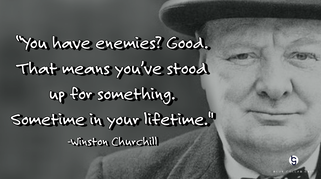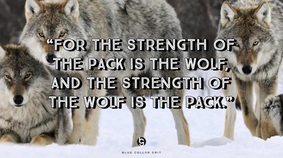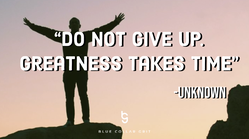Choose Your RejectionWhat part of yourself are you willing to be rejected for?
I mean, in a world full of judgement you know you’re going to be rejected for something at sometime, right? Someone will find something they don’t like about you. You might as well count on it. Rejection may be a little strong, but you get the idea. People are always looking for ways to sort. Your beliefs serve as one of the many ways they like to do that. I should add that this isn’t always a bad thing for us. It often guides us into groups of other, similarly rejected people, that are closer in beliefs than those doing the rejecting. The willingness to separate is an issue. Rejection knows no bounds in today’s world and is the antithesis of unity and teamwork requires. As leaders, it’s important that we are secure in what we are willing to be rejected for as well as understanding and willing to withhold judgement for others. Why Should We Care? The only people that think they avoid this rejection are the ‘cold and timid souls’ Roosevelt talks about in his Man In the Arena passage - ‘they know neither victory nor defeat’ because they never stand for, or go for anything. So many people spend their life trying to appease everyone else, never considering what they believe and who they are. They become a facade, taking on the likes and dislikes of whatever company they keep at the time. I’ve seen it most prevalent in two places: middle school and the corporate world ... and both for the same reason. In middle school we think that being liked trumps everything else. So, all feelings and beliefs are subject to change. I think the same can often be said for those trying to climb the corporate ladder. This lack of commitment to something results in a commitment to nothing. REAL TALK - Action Steps You will be rejected. The good news is, you get to choose what for. Below are a few thoughts that will help you lead through it.
Rejection, like many other things in life, is neither good nor bad. How we choose to handle it will determine its value. However, the knowledge of yourself and the willingness to hold fast to who you will always be critical to your leadership and pursuit of excellence. For more information on building excellence in your teams, visit us at www.bluecollargrit.com. We would love to know how we could help!
0 Comments
You Can't Be Tough AloneI love wolves. I think they’re cool. For me, they have an aura of strength and power about them that other animals don’t. They exude courage, often hunting prey much larger than themselves. Yet, they also display massive amounts of kindness, staying behind to be with an injured packmate.
What I like most about wolves though is their toughness. I think they have mastered what tough is all about. I know most people will quickly point out that lions and tigers are bigger, stronger … more intimidating than a wolf. To which, I agree. But you don’t see a wolf in the circus, do you? No, because for a wolf it’s not about the wolf. It’s about the pack. This simple, and profound, understanding is exactly what makes the wolf the biggest badass in nature. A wolf doesn’t try to be anything except a member of the pack. They understand they are no more, or less, important than every other member. They’re undeniably tough. But, that toughness isn’t the result of superior strength, speed, or size. It’s a result of the pack. Why Should We Care? I know there are leaders out there bigger than life, bigger than their organization. They have star power, deliver charismatic speeches daily, and move people to action with their mere presence. That’s not me. I’m not that good. I need other people. And, I’m good with that. I think that’s where true toughness resides - in a group, on a team ... we always beats me. For those of you like me, that are better in a pack, the question becomes: how do we find the right pack? The answer is simple. Wolves hang with wolves. That’s what makes a pack a pack, the other wolves. We need to search for other wolves. People that have similar mindsets, pursuits, and motivations as us strengthen both the wolf and the pack. We are hopefully all aware of how impactful the people around us are on our perspective and outlook on life. REAL TALK - Action Steps The purpose and drive to turn visions into realities must align but, the roles and process for each individual does not need to be the same. As a matter of fact, it shouldn’t be. The diversity adds strength.
To think we have ever truly done anything on our own is laughable. No matter how tough we might get, it pales in comparison to our toughness within a team. Just like there is no ‘I’ in TEAM, there is no TOUGH alone. For more information on building excellence in your teams, visit us at www.bluecollargrit.com. We would love to know how we could help! Given the CircumstancesLet me just say it to start with: it doesn’t matter.
The circumstances we face never serve as justification for the result. Far too often, we search for excuses when things don’t go the way we want. We want to feel better, to soothe our ego. One of the most common, easiest ways to do this is to blame our circumstances. I had no choice … what was I supposed to do … I couldn’t do anything about it … Our circumstances are such a convenient scapegoat. And, if you don’t attribute the substandard performance to your circumstances quickly enough, someone will do it for you. One of your ‘friends’ will help you justify the result. The phrase ‘given the circumstances’ immediately lowers the expectation, which is what we’re going for. It relieves us of responsibility, and makes whatever the result is more acceptable. At least we think it does. But, it doesn’t. See, we know what we are capable of. We know, regardless of what we say out loud, that the circumstances must be irrelevant. We know the standard is the standard - not the standard is the standard as long as something doesn’t make it too hard to reach it. Why Should We Care? The problem isn’t the use of our circumstances as an excuse anyway. The problem is that we feel like we need an excuse. If our focus was on the process, on testing ourselves, on constant growth; then we would see excuses for the pitiful, useless waste they are. It’s our obsession with the result that drives the need for excuses. The search for unfortunate circumstances is simply a window to the focus of our mind. Shift to a process-centered mentality and suddenly the circumstances become irrelevant. Actually, the more challenging, the more adverse, the better. The difficulty gives us more opportunity for growth, which those in love with the process cherish. When we accept the circumstances, we are freed to commit fully to the process. Only then can we perform without the fear of failure and judgement. The performance process becomes very simple.
REAL TALK - Action Steps Accepting our circumstances while maintaining the standard is a challenge for those pursuing excellence within teams or as an individual. Here are a few ideas to simplify it.
Remember, it’s not the excuse that’s the problem. The excuse is the symptom. The real issue is that we think we need to provide an excuse. When we know where home is, excuses become completely irrational because they only lead us away from it. For more information on building excellence in your teams, visit us at www.bluecollargrit.com. We would love to know how we could help! What Are You Chasing?More is usually the answer - more wins, more money, more fame. You work for it, plan for it, and network for it but do you ever have enough? Enough wins, enough money, or enough fame? The pursuit of more is not only exhausting, it’s a waste of your time. Yea, all that time you spend “grinding” is pointless if it’s in pursuit of the wrong thing. What are the wrong things? Well, money for one. Like everything else, money isn’t inherently good or bad. It’s just money. What we choose to do with it, what we will do to get it, and our purpose for making it will determine the good or bad. Status, or fame, would be another. Similar to money, the pursuit of status will never fulfill you enough. More simply leads to the desire for more. The likes, rankings, and rewards may lead to short-term motivation and results but it doesn’t provide the substance to maintain. Happiness. That’s right, happiness. Chasing happiness is one of the surest ways to not achieve it. With happiness as your focus, comfort becomes the most logical means … and comfort kills. Happiness, like money and status, isn’t something to be pursued; it’s the byproduct of pursuing the right things. Why Should We Care? So, what are the right things to be chasing? These are going to seem simple. They’re not. Progress. That’s right, progress. One of the most motivating, inspiring things in the world is progress. The feeling that you are further along today than you were yesterday creates an undeniable energy that drives you to do it again the next day … and the next, and the next. Consistent progress is the only path to excellence. ChopChop. Contribution. When you provide value to someone or something else, you feel needed. The contribution doesn’t need to be publicized or even significant in the eyes of those outside the arena. You must feel like you contributed. That’s it. The feeling of contributing to something outside of yourself is powerful and a worthwhile chase. Meaning. For some this would fall under faith, it does for me. But, in any case, seeking to understand why you are here and what you are here to do is a noble pursuit that will lead you to a way of life that is unordinary. People who understand their meaning and purpose in life are different. You can tell from the moment you first interact with them. Their presence inspires because how they do everything is an offshoot of their purpose. The simplicity and clarity they live with is clearly the result of a fantastic chase. REAL TALK - Action Steps To focus on what you should be chasing is challenging. Most get pulled off track and down the road of the wasted pursuits. Here’s a few ideas on how to help those we lead in this chase.
The things we should be chasing seem simple. And, they are. However, simple does not mean easy. The ability and toughness to stay focused on the right chase, is available to all but only embraced by those striving for excellence. Make sure you’re running the right race. For more information on building excellence in your teams, visit us at www.bluecollargrit.com. We would love to know how we could help! Do Things That Take AwhileI’ve been a high school teacher and coach for over 20 years now. Everyone wants to talk about how different kids today are and how much they’ve changed. Some of which is true and some is not - like every generation before them, I suppose.
I’d like to focus on one aspect of society, not just our kids, that has changed drastically since I first started my education career: the willingness to persist. It’s not debatable. I’ve personally watched the steady decline in grit. As a whole, society does little reinforce the need for it. Actually, we do the opposite. We expect immediate service at the drive-thru window - forget the fact that you are sitting in your car doing literally nothing, while someone else is fixing your food for you. We expect immediate replies to our text messages - never mind the rest of the other person’s entire life that should now be on hold to reply to your likely trivial request. We expect our teams to click and have great chemistry within the first week of being together - disregard we are typically pulling together individuals from completely different backgrounds with completely different expectations to try to accomplish a common goal. Why Should We Care? That has changed. It’s different now. It wasn’t that way 20 years ago, but it was trending in that direction as it probably always has been. Our expectations grow with each advancement. What hasn’t changed? The best things aren’t achieved quickly. It hasn’t changed and isn’t going to change. The best things require us to wait ... as they should. Work must be put in, obstacles have to be overcome, and failures must be confronted. Teams are the perfect example. The organic nature of team development is on it’s own timeline. We can influence it, guide it, even push it but we can’t force it. It’s going to take time. Time for shared experiences, time for knowledge of each other to develop, and time for vulnerability to be embraced and trust to be built. I think our obsession with instant gratification is a major player in the significant increase in poor team performance in all arenas. Leaders, team members, and stakeholders are not accustomed to waiting. This lack of patience is a considerable problem in the team setting, mainly because there is no way around it. Even the best teams, ones that perform well early in their time together, have not tapped into their true potential at the early stages of existence. They may be good, but they’ll be better later. REAL TALK - Action Steps The interesting part of this is applying it. Even if we recognize it, how do we defy the societal norm and embrace the time excellence and true teams require? Here are a few thoughts to help pave the way.
Just as teams require a certain amount of time to truly develop, the same can be said for individual performance. We take time too. Excellence requires time. As Trevor Moawad’s book title states, “It takes what it takes.” Accept it and embrace it - for yourself and for your team. For more information on building excellence in your teams, visit us at www.bluecollargrit.com. We would love to know how we could help! |
About bcI'm a teacher, coach, and parent seeking excellence while defining success on my own terms. Archives
July 2024
Categories |






 RSS Feed
RSS Feed